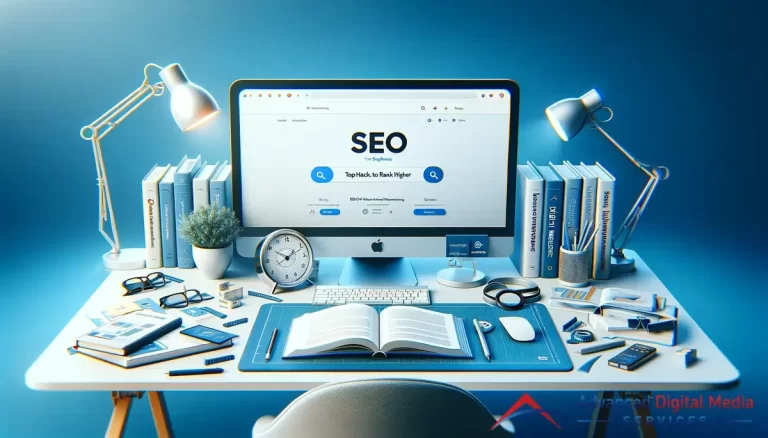Event marketing for conferences or workshops requires a solid digital presence in the business landscape. Creating exciting landing pages, social media posts, blogs, and videos is a great start, but how do you ensure your target audience discovers them online?
Developing a strategic SEO plan for your event marketing campaigns is the answer. Optimizing your event landing pages, videos, blogs, and social media posts for organic search can increase their visibility and let them reach a wider audience.
While SEO may seem daunting to event planners and marketing teams, it doesn’t have to be. That’s why we’ve put together this simplified SEO guide for event marketing.
In this guide, we’ll walk you through effective SEO strategies to boost the visibility and promotion of your event. So, let’s get started!
SEO for Event Planners
As an event planner, you know a solid online presence is essential for attracting attendees and generating buzz around your events. SEO is the perfect tool to help boost your marketing efforts. Optimizing your event marketing content for search engines can increase your visibility and reach a wider audience.
In this section, we’ll explore the SEO world for event planners. So, let’s dive in and start optimizing!
1. Improve your website with event schema markup.
Schema markup is structured data that provides search engines with additional information about a website’s content. It is handy for event planners who want to improve their website’s visibility in search engine results and attract more traffic to their event landing pages.
Here are some ways that implementing event schema markup can help improve your website:
- Increased visibility in search results – Implementing schema markup can help your event website appear in rich results on search engines, making it more visible to users.
- Better targeting – Schema markup can help target more specific audiences by including details such as event category and attendee information.
- Easy implementation – You can implement schema markup using a CMS or manually through HTML on your website. Several resources and tools are also available to assist in the implementation process.
- Improved analytics – Schema markup can provide more detailed analytics data, allowing event planners to track the performance of their events and make data-driven decisions.
2. Upgrade your event pages.
An excellent SEO strategy for your entire website is crucial for the success of your event pages, as Google considers the overall optimization of your website. While promoting virtual events may be challenging, several key SEO factors can help your event website rank higher and achieve a position in rich results.
Here are three effective strategies:
- Optimize the page layout – Ensure the page’s design is clean, visually appealing, and easy to navigate. Use high-quality images and videos to showcase your event.
- Enhance content – Create informative, engaging, and relevant content. Use bullet points, subheadings, and bold text to highlight important information.
- Improve mobile responsiveness – Ensure your event pages are mobile-friendly and easily accessible to various devices.
3. Take advantage of ticketing platforms and online marketplaces.
Taking advantage of ticketing platforms and online marketplaces can help you reach a broader audience and increase ticket sales for your event. These websites enable event hosts to sell tickets, keep track of registrations, and provide a smoother experience for attendees. Here are some popular websites that are certified to sell tickets for events:
4. Generate organic backlinks through promotion.
Backlinks, or inbound links, originate from external websites and direct traffic to your event landing pages. In digital marketing, we often see backlinks as votes of credibility that can improve the search ranking of your event pages.
Incorporating backlinks into your SEO campaign for event advertising can help to establish your landing pages as authoritative and relevant, attracting more traffic.
Here are some specific back linking strategies you can use for event marketing:
- Reach out to event bloggers. Find influential bloggers in your industry who write about events and reach out to them with a pitch for your event. Offer them a complimentary ticket or special access in exchange for a blog post with a backlink to your event landing page.
- Promote your event on social media. Share your event on social media platforms and encourage attendees to share it. Social media shares can help generate organic backlinks from other websites or blogs.
- Create shareable content. Create content that is shareable and interesting, such as videos, infographics, or unique statistics related to your event. This type of content is more likely to be shared on social media and attract backlinks.
- Work your network. Contact your industry affiliates, partners, and sponsors and ask them to advertise your event. This can increase visibility and generate natural backlinks.
- Participate in online communities. Actively participate in online communities relevant to your event, such as forums or social media groups, and engage with potential attendees. This helps build relationships and generate natural backlinks.
5. Enhance your local visibility.
Event planners should prioritize location-based SEO strategies. Website content must emphasize location-specific information, such as event details, participants, and how the event benefits the local audience.
To optimize their website’s on-page SEO, event planners must focus on various elements, including:
- Limiting Heading1 to 1 or 2 max, and Heading2 can exceed 5
- Adding Alt text to images
- Optimizing the URL
- Creating SEO meta descriptions
In addition, event planners should research keywords based on customer intent and consider the phrases they would use to search for the event. A simple tactic is to type the event name and see what suggestions come up.
Tools such as Ahrefs or Semrush can help discover the keywords customers used to search for branded events.
The Bottom Line
Event marketing requires a robust digital presence that comprises persuasive landing pages, social media posts, blogs, and videos. An SEO strategy is essential for optimizing your event advertising campaigns for organic search, thus increasing visibility and reaching a broader audience.
By implementing event schema markup, optimizing event pages, utilizing ticketing platforms and online marketplaces, generating organic backlinks through promotion, and enhancing local visibility, event planners can improve the online presence of their events and achieve their marketing goals.
Get a front-row seat to success with Advanced Digital Media Services!
Successful event marketing in today’s digital age begins with a solid SEO strategy. If you’d like to know more, Advanced Digital Media Services is a Winter Haven SEO firm with valuable insights and practical tips for boosting your event’s online presence and attracting more attendees.
Contact the team today to get a front-row seat to potential growth opportunities available for event organizers through effective SEO marketing campaigns. Let’s work together to make your next event a resounding success!





